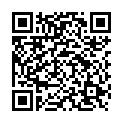|
|
|
| Module code: MBG21.B.53 |
|
3S (3 hours per week) |
|
3 |
| Semester: according to optional course list |
| Mandatory course: no |
Language of instruction:
German |
Assessment:
Module work
[updated 30.10.2023]
|
MBG21.B.53 Management and Professional Pedagogy in Health Care, Bachelor, ASPO 01.10.2021
, optional course, general subject
BAPP21.PA.51 ..., Bachelor, ASPO 01.10.2021
, optional course, general subject
|
45 class hours (= 33.75 clock hours) over a 15-week period.
The total student study time is 90 hours (equivalent to 3 ECTS credits).
There are therefore 56.25 hours available for class preparation and follow-up work and exam preparation.
|
Recommended prerequisites (modules):
MBG21-1 Academic Methodologies and Study Skills I
MBG21-14 Vocational Pedagogy in Health Care III
MBG21-18 Vocational Pedagogy in Health Care IV
MBG21-4 Vocational Pedagogy in Health Care I
MBG21-8 Vocational Pedagogy in Health Care II
[updated 12.10.2023]
|
Recommended as prerequisite for:
|
Module coordinator:
Prof. Dr. Christine Dörge |
Lecturer:
Dr. Sindy Lautenschläger
[updated 12.10.2023]
|
Learning outcomes:
After successfully completing this module, students will:
be able to distinguish between different assessment functions, e.g. allocation, selection and qualification.
be able to distinguish between the three basic types of individual, social and factual reference standards in assessment processes.
be aware of the importance of the reference standard(s) used in assessment processes.
be able to classify competence measurement and assessment in existing orientation frameworks, e.g. qualification frameworks (e.g. EQF, DQR, HQR, FQR)
be able to describe different competence-oriented performance measurement, assessment and feedback procedures for recording and promoting professional competence.
be able to design exemplary goal-oriented and formally correct examination tasks, as well as instruments for reflection and tools for checking learning success.
be able to apply competency-based assessment and evaluation formats in a situational and contextual manner.
be able to reflect on examination and assessment situations they have experienced themselves from the different perspectives of those involved.
be able to reflect on different assessment functions (e.g., allocation, selection, qualification).
be able to reflect on the opportunities and limitations of different competence-oriented examination and assessment formats.
reflect on their own role in examination and assessment situations against the background of their professional biography.
[updated 30.10.2023]
|
Module content:
1. Functions of assessments (e.g., allocation, selection, qualification).
2. Reference standards in assessment processes (individual, social, objective)
3. Orientation frameworks for measuring and assessing competencies, e.g. qualifications frameworks (e.g. EQF, DQR, HQR, FQR)
4. Procedures and application of competence-oriented performance measurement, assessment and feedback
5. Chances and limits of different competence-oriented examination and assessment formats
6. Reflecting on examination and assessment situations
[updated 30.10.2023]
|
Teaching methods/Media:
Blended learning
[updated 30.10.2023]
|
Recommended or required reading:
Will be announced at the beginning of the module.
[updated 30.10.2023]
|

